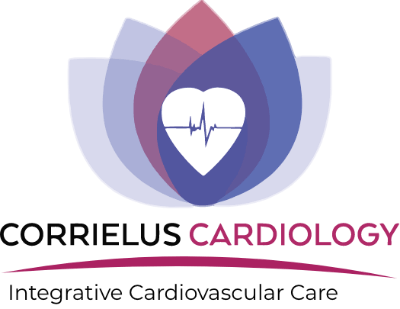Aortic valve regurgitation, a distinct form of heart valve disease, is primarily defined by the backward flow of blood into the heart, resulting from the aortic valve's failure to close securely. This condition, often referred to as aortic insufficiency or leaky aortic valve, brings about a unique set of challenges for the affected individuals.
The aortic valve, which ideally should act as a one-way gate allowing blood to flow from the heart to the body, starts to malfunction. The leaflets of the aortic valve, designed to close tightly after each heartbeat, fail to do so. This dysfunction results in some of the blood, rather than continuing its journey out of the heart, leaking back into the heart with each heartbeat.
Such an anomaly can put undue stress on the heart, making timely detection and proficient treatment pivotal. It's a condition that warrants a comprehensive understanding, and our team at Corrielus Cardiology is committed to providing this in an empathetic, patient-centric manner.
Aortic regurgitation, also known as aortic insufficiency or a leaky aortic valve, is a condition where the leaflets of your aortic valve do not close as tightly as they should. Instead of blood moving out of your heart, some of it leaks backward with each heartbeat.
Your aortic valve is the 'door' that governs the flow of blood between your heart and your aorta. Your aorta is the largest artery in your body. With each heartbeat, oxygen-rich blood is pumped from the heart's main pumping chamber, the left ventricle, into your aorta.
When the left ventricle relaxes, the aortic valve closes, directing the blood flow in the correct direction. However, in cases of aortic regurgitation, the valve does not close all the way, causing some blood to leak backward into the left ventricle.
Aortic regurgitation can be classified into two types based on how quickly the volume overload in the left ventricle happens.
Acute aortic regurgitation occurs when the volume overload happens quickly and suddenly. In contrast, chronic aortic regurgitation occurs gradually over time, with the latter being more common in the U.S.
Aortic valve regurgitation can be caused by several factors, including:
- Congenital heart disease, especially a bicuspid aortic valve (BAV)
- A calcified aortic valve, common in people over the age of 60 with mixed valve disease
- Previous aortic valve replacement, where the bioprosthetic valve may fail over time
- Rheumatic heart disease, a leading cause of aortic regurgitation in low- and middle-income nations.
Other causes include rheumatic fever, endocarditis, aortic valve stenosis, and high blood pressure.
Aortic regurgitation may not present any symptoms for a long time. When they do appear, they can come on suddenly or gradually. Common symptoms include:
- Chest pain that worsens during exercise
- Fatigue
- Shortness of breath
- Swelling in the ankles
- Rapid pulse rate.
The most serious potential complication from aortic valve regurgitation is heart failure, which occurs when your heart muscle weakens and can't pump blood properly to your body.
Heart failure can then lead to complications with other organs. Aortic regurgitation can also raise your risk of getting endocarditis, an infection of the inner lining of the heart.
Aortic regurgitation can be detected by a doctor listening to your heart with a stethoscope. If they hear a whooshing sound between beats, it could indicate valve problems. Other tests include echocardiography, chest X-ray, and cardiac catheterization.
Treatment can range from monitoring and medication for high blood pressure to aortic valve replacement surgery. Transcatheter aortic valve replacement (TAVR) is a less invasive procedure where a replacement valve is inserted at the site of your defective valve via a catheter.
It is crucial to note that while there are no guaranteed ways to prevent aortic valve regurgitation, maintaining a healthy lifestyle can significantly contribute to overall heart health.
At Corrielus Cardiology, we're committed to delivering exceptional cardiovascular care, with a focus on total wellness. Our proficient team, steered by Dr. Corrielus, is well-equipped to diagnose and handle aortic valve regurgitation, crafting tailored treatment plans for each patient to ensure the best possible outcome.
Reach out to Corrielus Cardiology at 215-383-5900 or book your cardiology consultation online. Your heart health is our top priority.



